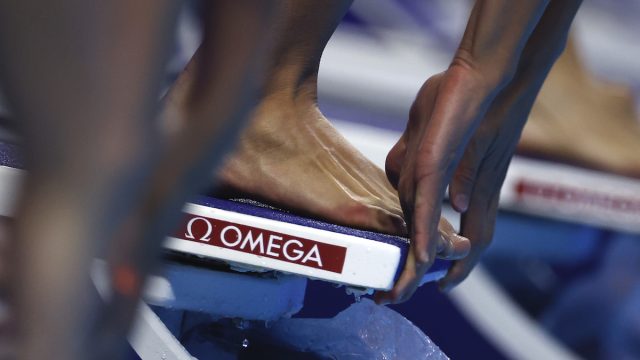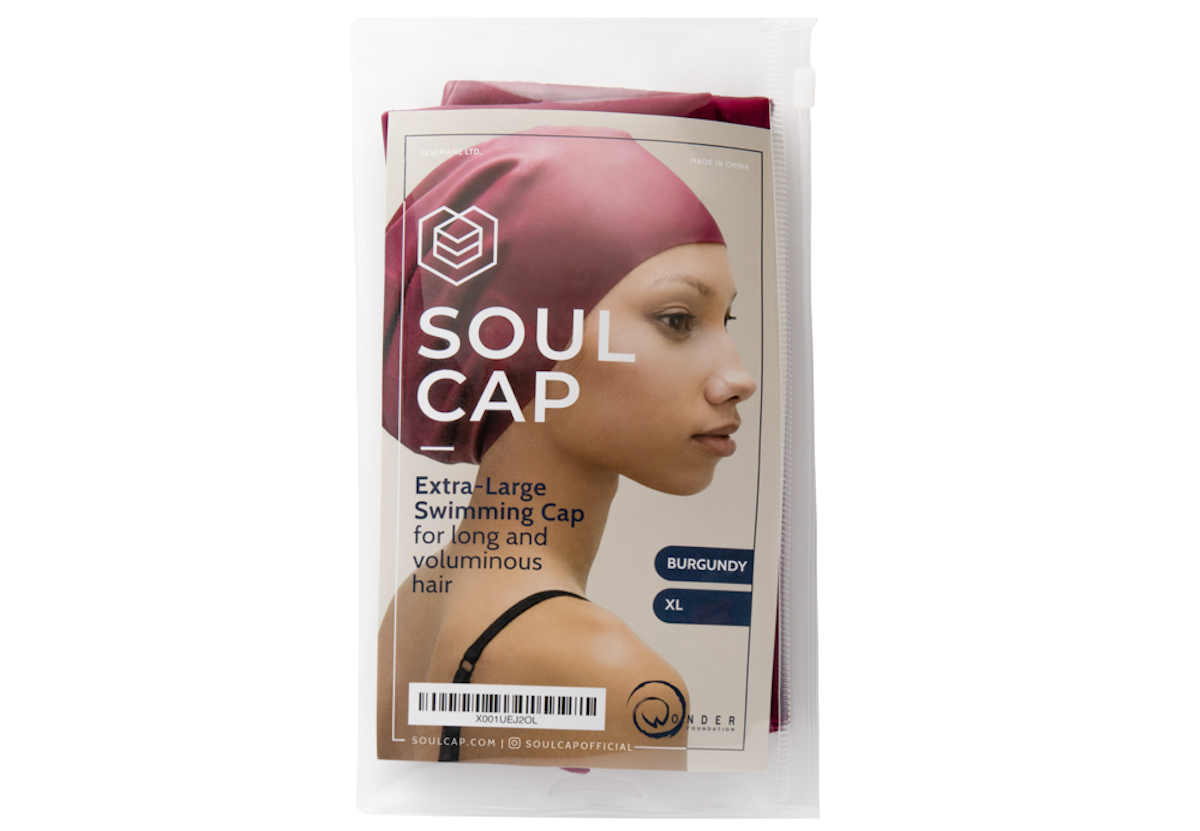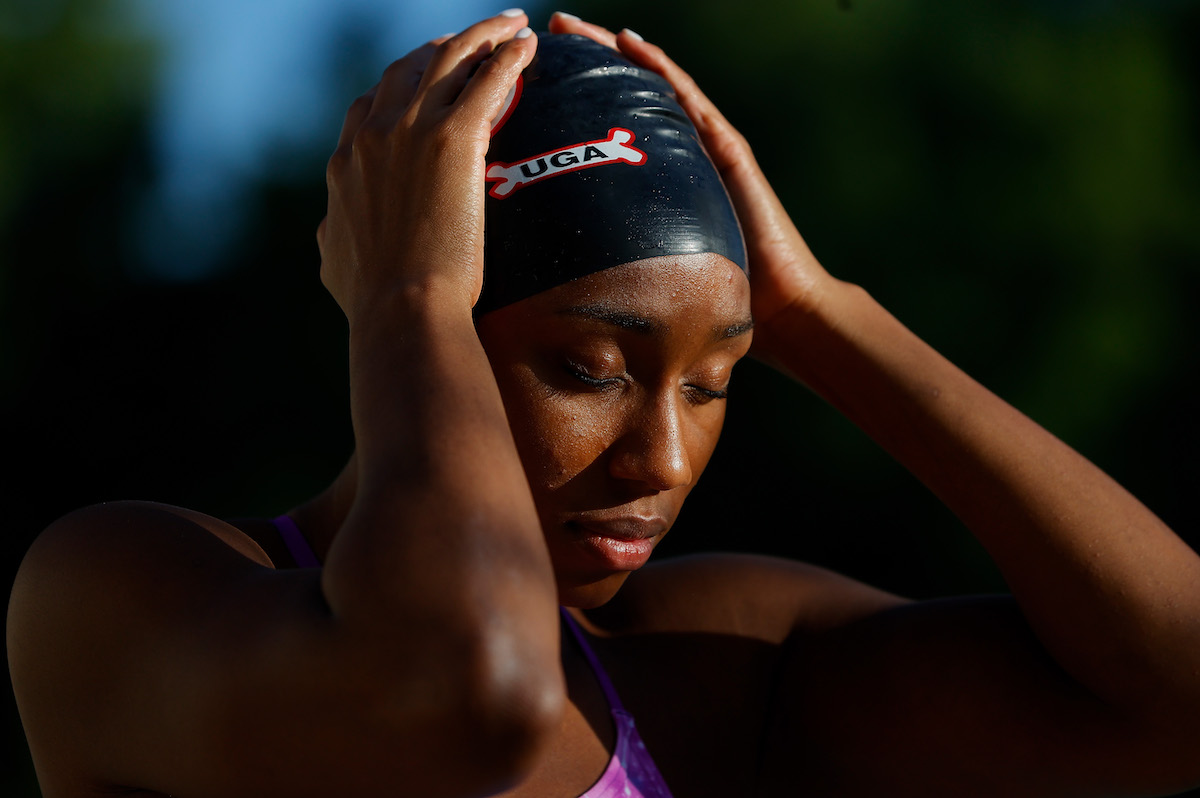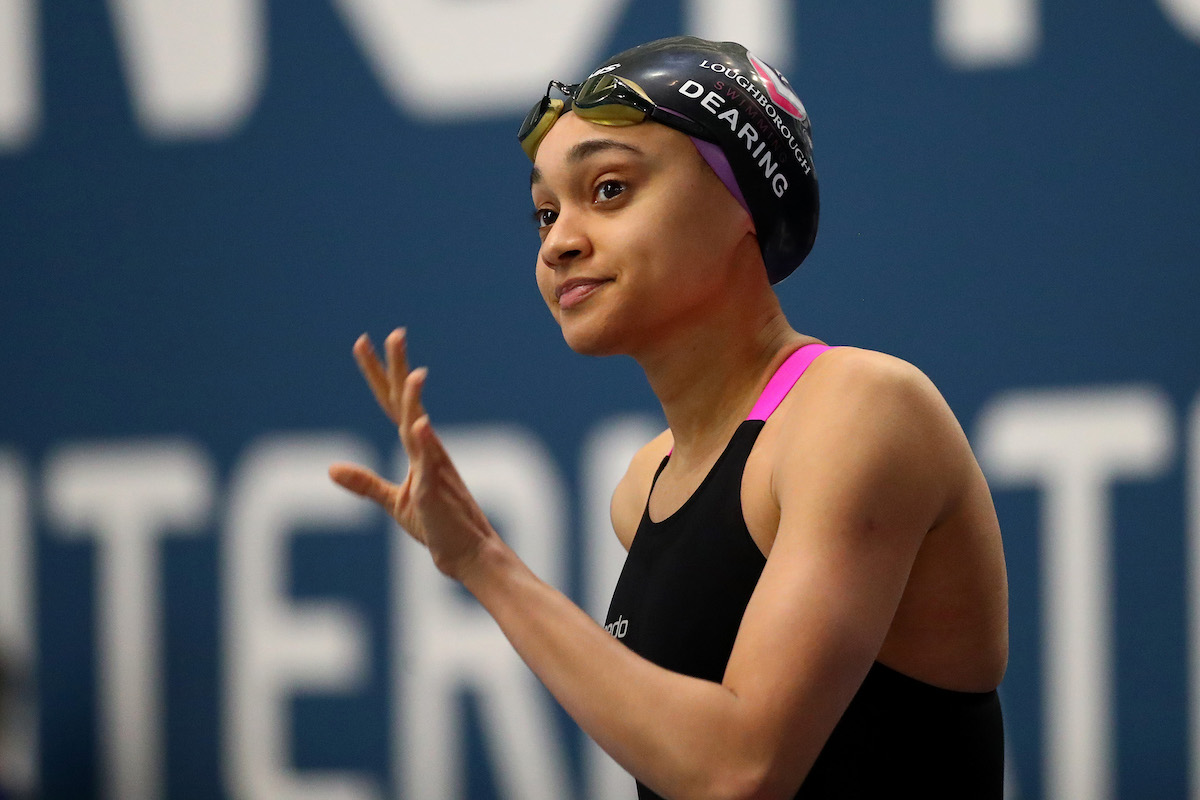The Olympics Is Under Fire for Banning This at the Games This Year

Tension around the Olympics, which are set to kick off in Tokyo on July 23, has been building this year as the delayed games face added challenges due to the ongoing coronavirus pandemic. But now, the Olympics have come under scrutiny for a very different reason. This week, there has been outcry over the latest decision by the International Swimming Federation (FINA) to ban one item for swimmers at this year’s Olympic games. Read on to find out the root of the controversy and what the Olympics is doing in response to the backlash.
RELATED: The Only Way Sha’Carri Richardson Could Still Compete at the Olympics.
FINA banned the use of a swim cap designed for Black athletes with natural hair.

Black-owned British company Soul Cap was started in 2017 by two best friends Michael Chapman and Toks Ahmed. The duo designed the swim cap for people with voluminous hair after witnessing a woman struggle with the small size of her swim cap. The two were just learning to swim themselves and said the woman’s problem stuck with them. After speaking to friends, their sisters, and their mothers, they decided to design a more inclusive swim cap. Soul Cap, whose motto is “big hair deserves big care,” sells four sizes of swim caps—original, XL, XXL, and junior—to accommodate athletes with thick hair, curly hair, dreadlocks, braids, weaves, and natural Black hair.
Chapman and Ahmed had hoped that having their swim caps certified for the Olympics would help further diversify the sport of swimming, but their swim cap was denied certification by FINA. The federation requires apparel companies to submit any new designs and materials for approval before they can be authorized for use at the Olympics. Soul Cap submitted the material and design for certification in 2020 and learned this week that they were declined certification for use in competition swimming, the company wrote on Instagram.
FINA claimed the caps could give swimmers an advantage.

FINA denied the approval for the cap, determining that to their knowledge, “athletes competing at the international events never used, neither required to use, caps of such size and configuration,” according to a post to Soul Cap’s Instagram story on July 2. FINA had previously expressed concern that the large shape of the swim cap could disrupt water flow and might give a swimmer an advantage in the water. FINA also reportedly told Soul Cap that swimwear does not follow “the natural form of the head.”
The decision comes less than 10 days after the USA swimming team announced its 53-member roster for the pool and open water competitions for the Olympic Games in Tokyo, which includes multiple women of color, including Natalie Hinds, pictured here.
Soul Cap had recently partnered with Alice Dearing, who is the first Black woman swimmer to represent Great Britain at the Olympics (pictured next). “I’ve had a journey with my hair (and managing it!) while becoming an elite swimmer—but I never questioned whether it was the swimming cap or my hair that was the problem,” Dearing said in an editorial on the Soul Cap site in 2020. “People used to tell me my hair was ‘too big’ for the cap—never that the cap was too small for my hair.”
RELATED: If You See This, Get Out of the Pool Immediately, Experts Warn.
The Black Swimming Association spoke out about FINA’s decision.

The Black Swimming Association described FINA’s decision as “disappointing” and said they believe “this will no doubt discourage many younger athletes from competitive swimming.”
Danielle Obe, a founding member of the Black Swimming Association, told The Guardian that FINA’s ban of the Soul Cap highlights the inherent systemic and institutional racism in swimming. “We believe that it confirms a lack of diversity in [the sport],” she said. “[Black hair] need[s] the space and the volume, which products like the Soul Caps allow for. … Inclusivity is realizing that no one head shape is ‘normal’.”
Soul Cap said in an Instagram post this week that they developed the swim cap to foster inclusion for younger swimmers and to show that athletes didn’t need to choose between “the sport they love and their hair.” After the announcement, the company said they were disappointed by FINA’s decision, but that they would not give up striving to help bring diversity to competitive swimming. Clearly disappointed with the ruling, the company posted the question, “How do we achieve participation and representation in the world of competition swimmers if the governing body stops suitable swimwear being available to those who are underrepresented?” They added the hashtag #SwimForAll.
RELATED: For more up-to-date information, sign up for our daily newsletter.
The backlash has prompted FINA to revisit their ban.

After the backlash, FINA released a statement on July 2 saying that they are “committed to ensuring that all aquatics athletes have access to appropriate swimwear for competition where this swimwear does not confer a competitive advantage.” FINA said it will review the situation with regards to Soul Cap and other products, understanding the importance of inclusivity and representation. They said that they plan to make their consideration of Soul Cap and similar products “part of wider initiatives aimed at ensuring there are no barriers to participation in swimming, which is both a sport and a vital life skill.”
FINA also pointed out that there is currently “no restriction on the ‘Soul Cap’ swim caps for recreational and teaching purposes.” They also said they plan to speak with the manufacturer of Soul Cap about using their products through the FINA Development Centres.
RELATED: See Randall Cunningham’s Daughter Vashti, Who’s Headed to the Olympics.